
David Weigel is a journalist – he’s known for his coverage of the conservative movement in the US. He once riled Donald Trump enough that the then-president called for Weigel’s firing from The Washington Post. Weigel’s also the author of a 2017 book about progressive rock: The Show That Never Ends: The Rise and Fall of Prog Rock. It’s obviously five years old at this point, but I’ve always wanted to read it and recently found a copy at the library.
I was surprised by how short the book was. Given the lengthy, overblown nature of progressive rock, I expected a weighty tome. The short running time means that second tier progressive bands like Gentle Giant and Camel don’t get much airtime. Coverage is given to neo-prog artists like Marillion, Porcupine Tree, and The Mars Volta, but supergroup Transatlantic aren’t mentioned. The photo section is skimpy, but overall the short length makes for a breezy read, with room for fun anecdotes like:
As the album was being compiled, [Keith] Emerson relocated to Nassau, in the Bahamas. It was there, powered by “three grams of coke, accompanied by three bottles of Cognac,” that he looked across the water and decided to swim to England. We realized it was quite a long way,” Emerson would say, “but we had a compass.” The effort failed. Keith Emerson was pulled wheezing from the water. January 14, 1977, was the last day he would use cocaine.
[Tony] Levin had been playing with experimental bands for a long time. Years earlier, he’d missed a shot at joining John McLaughlin’s fusionist Mahavishnu Orchestra when he was out and his in-laws took the call. “I was given the message that I’d been called about a job with Murray Vishnu and his Orchestra,” Levin remembered. “I didn’t take the job.”
Weigel was able to interview many major figures in the progressive rock world. This includes Greg Lake, John Wetton, and Keith Emerson, who all passed away before the book was released. If anyone’s the central figure, it’s King Crimson’s Robert Fripp, who managed to stay ahead of the curve by constantly changing musical shapes. Fripp also has the book’s best quote, where he refers to himself and Brian Eno as “wonderful examples of young Taurian virility”.
I was already familiar with the trajectories of the major 1970s progressive rock acts like King Crimson, Jethro Tull, Yes, and Genesis, On the other hand, I was fascinated by the story of Mike Oldfield, who seemingly came out of nowhere to record the mega-selling Tubular Bells (still the UK’s 26th biggest-selling album of all time). It was also interesting how multiple musicians cited Church of England hymns as a formative influence.
The Show That Never Ends isn’t bulky enough to be a definitive guide to progressive rock, but it does a great job of summarising the genre’s history and impact into a readable book.
Read More
38 Comments
Leave a Reply
About
Aphoristic Album Reviews is almost entirely written by one person. It features album reviews and blog posts across a growing spectrum of popular music.
Review Pages
Read about the discographies of musical acts from the 1960s to the present day. Browse this site's review archives or enjoy these random selections:
Blog Posts
I add new blog posts to this website every week. Browse the archives or enjoy these random selections:



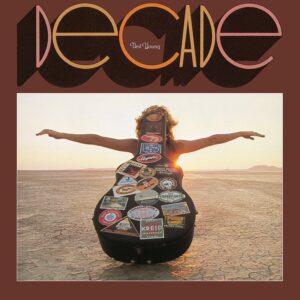
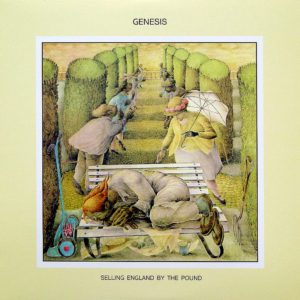
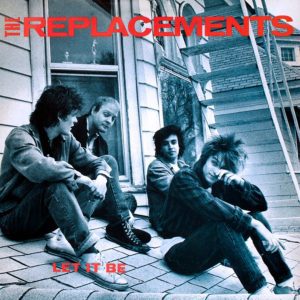

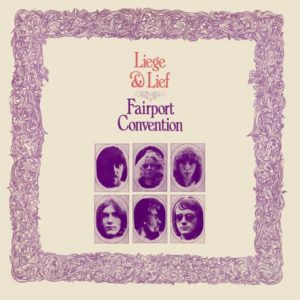

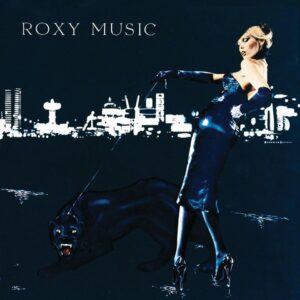


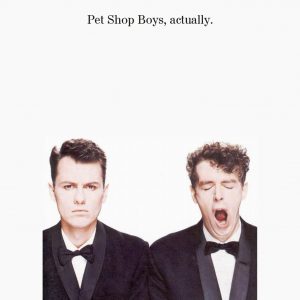


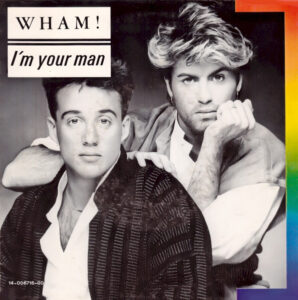




I think I’ve read just about every rock, soul or blues book there is but it never occurred to me to read a prog book. I wasn’t aware prog had fallen but ok. (I am going to a prog show in July that I hope to write up.) The Levin anecdote is perhaps the funniest thing I ever read in my life. Were I ever to be in a band again, it would be called Murray Vishnu and his Orchestra, I may have to read this.
As to Tubular Bells, literally one of my favorite albums of all time. I wrote about it back in 2016.
https://musicenthusiast.net/2016/07/20/featured-album-tubular-bells/
Prog was most dominant in the early 1970s – Tubular Bells and Dark Side of the Moon were mega-sellers, while ELP’s Tarkus made it to number one. There were a few high profile albums that damaged its reputation – the most infamous is ELP’s Love Beach, but earlier Jethro Tull’s A Passion Play and Yes’ Tales from Topographic Oceans were critically savaged.
I have heard some of Tubular Bells. I tried to listen to it once but my sister made me turn it off. Then we were watching the Olympics opening ceremony a few weeks later which used Tubular Bells and she enjoyed it. She is weird.
Well, now that your sister is (I assume) not living with you and making you turn it off, you might want to give it a listen. It’s very heavily guitar-oriented though which may or may affect your opinion.
Yup, I should remember to hear it sometime – I’ve always meant to. Growing up in the 1980s with a Commodore 64, I think Tubular Bells along with Yellow Magic Orchestra (who I mentioned last week) both had tunes used in games – I think there was an entire program where you could speed and slow up Tubular Bells and get a graphic display along with the music.
BTW, I’m well aware of when prog was dominant. I was there at the creation, so to speak. Alas, I am old enough to have been present – or at least alive – for literally every genre of post-big-band popular music. I suppose one could say prog is “fallen” because it doesn’t have the same mass popularity
But that is true of rock in general.
I would give Tubular Bells at least two spins. Side One is better but both sides (I’m thinking vinyl here) are great.
Normally when I put something on my playlist to listen to I commit to it and give it a decent number of listens.
I’ve been going through neo-prog Marillion’s discography and they were pretty successful in the charts in the UK through the 1980s and 1990s. Their first seven albums, from 1983-1994, all made the top ten. ‘Kayleigh’ was a #2 single in 1985 as well.
They hit #2 a few weeks ago, but that’s pretty par for the course for an established act in today’s fragmented market.
A band I keep meaning to get to. To your point, I don’t listen to prog nearly as much as I used to. And if I do, it’s usually Yes.
I think I want to read this book . Especially the part about Tubular Bells cuz I’ve always been so fascinated by that album and I love it.. Like most people I first learned about it when I found out that it was the great music for the opening of The Exorcist, which is my all-time favorite movie, other than 2001: A Space Odyssey, of course. I’m pretty sure it’s going to be one of those books that I always find online for about 5 or $6. If you go to the right places you could find all these great music books cheap. I got a whole ton of them. And a lot of great books that have been out of print for years but you always wanted to read cuz somebody told you about them.
Have you read Giles Smith’s Lost In Music? That’s an old favourite of mine.
Actually I never heard of it but I Googled it. It sounds like the kind of thing I like. I had all these ones from Kindle that were really just somebody talking about their favorite records and stuff. When I saw the title Lost in Music it sounded familiar and I thought maybe It was one of the books I had about Chic and Nile Rogers. I swear one of them was called Lost in Music, named after the famous song by Sister Sledge that he wrote and produced and stuff. I had his autobiography too, which was wild. I had a bunch of books about Disco and I remember that they were usually really bad, But there was one or two good ones too.
I may pick up this book…I’m not strong into prog-rock…there are a few things that I do like. Since it’s not so huge I might enjoy it. I do like the quotes you provided.
It’s pretty easy to read – didn’t take me too long.
It sounds good…I need to finish my current book and then I’ll probably get it.
I read this one when it came out, and had similar responses to yours . . . . I’m a prog nerd of the highest magnitude (e.g. https://jericsmith.com/2010/10/01/march-of-the-mellotrons-the-best-classic-progressive-rock-album-ever/), but I still learned a few new things, here and there, which was nice. I appreciated the author’s sense that much of the spirit of prog, such as it is, lives on more in the metal sides of the world than on the folk/symphonic sides these days. That probably at least partially explains why I’ve also been a metal-head of some standing for a long, long time. I do have to say, though, that I’m not a fan of “neo-prog,” so yielding such a sizable chunk of such a small book to that era didn’t do anything for me . . . I do think prog DID “die” (right after ELP’s “Love Beach” and just before Asia’s debut, if I want to be specific, time-wise), just as I think that punk “died” by 1981, and so I have little use for the “neo-punk” that has followed that, either . . .
I heard Heat of the Moment this morning and I got so into it. I was so into it that I turned it up real loud and put it on repeat. It was wonderful. I can’t remember feeling that way about it before even though I’ve heard it a thousand times. I don’t remember ever hearing the whole album though. And I was trying to remember who were the prog guys in Asia and which groups they came from, but I couldn’t quite remember. I’ll probably look it up now that I’m thinking about it. It’s really a great record though. It sounds like prog rock turning into something else, but I’m not sure what.
I like(d) Asia well enough, even at the time. But I had such HIGH PROG hopes for that album (it was Palmer, Howe, Wetton and Downes), that when it was essentially just a really good “regular” rock album, that made it seem like the era of giant hogweeds and songs from the wood and topographic oceans and tarkuses was done, for good . . . I actually liked Asia’s last pair of albums before John Wetton died A LOT, so if you get on an Asia jag, I definitely recommend them.
I didn’t even know they had more than one album. But now I remember the other song Time Will Tell. That must have been a hit too if I can remember it. I don’t know those names Wetton and Downes or where they came from. I was never an expert on prog rock bands even though I know all the big ones pretty well. What album are you talking about when you said giant hogweeds? I don’t know which one that could be. I think Songs from the wood is Jethro Tull though. And Tarkus I know. You know what I really like? Bungle in the Jungle. I know that people think it’s really bad but I like it.
Giant Hogweeds is Genesis Nursery Cryme. Although Richard Dawson touched on some similar territory with his proggy plant album last year.
Asia have had a LOT of albums. John Wetton was with Family, King Crimson, Roxy Music, Uriah Heep, Wishbone Ash, and UK before Asia. He’s one of my all-time favorite bassists and singers, including the lead vox on “Heat of the Moment.” He and Geoff Downes (ex-Buggles, on Yes’ “Drama” LP, and in the current version of Yes) were the main songwriting pair for Asia up until Wetton’s death. And, yeah, the hogweed and other bits were references to various big prog albums of the era.
Saying that reminds me: as much as I have adored and regularly listened to this music since the early ’70s, I don’t think I ever heard or used the word “prog” until probably the early 2000s . . . we didn’t call it that, back then. There was “progressive rock,” but even that had a slightly different meaning, as probably best evidenced by the use of the term “progressive rock radio” for free-form stations, that could and did play pretty much ANYTHING, not just what we think of as “prog” today.
Prog just means symphonic rock now, really
Wetton, Palmer, Howe, and Downes.
I’ve read that before, but read it again. I have a few holes in my 1970s prog knowledge – I don’t know Kansas apart from the two famous songs, and I’m pretty light on ELP. I listened to most of Minstrel in the Gallery this morning – I have a lot of 1960s and 1970s Tull on CD, but never found that one so I don’t know it as well.
It sounds like the fresh stories and quotes are worthwhile, but that’s not enough, is it? And, as Jim observed, has it fallen? My reading says ‘No’.
And was it overblown? I’d say only when falsely compared to three minute radio pop.
But then, I would. I’ve read at least ten books on progressive rock and it’s my single favourite sub-genre.
Thanks for review, Graham. Not one to purchase, but maybe to seek out at the local library.
I think it clearly fell from favour – Jethro Tull’s Passion Play, Yes’ TFTO, and Love Beach were all critically maligned. It’s stuck around but it’s not dominant like it was. People have way smaller attention spans than in the 1970s too IMO.
Actually, if you look at sales, it only fell from favour with critics and music newspapers, not with fans. The idea of punk ‘sweeping away’ prog is another oft repeated but baseless myth. Of course ‘Love Beach’ was a stinker.
It didn’t even sweep away disco, let alone anything else. lol
What are you thinking of in this? You could argue that Yes and Genesis enjoyed high-selling albums in the 1980s that still had elements of prog, like ‘The Brazilian’ on Invisible Touch.
The people interviewed in the book generally felt that record companies were much less obliging toward prog bands after prog fell out of favour towards the end of the 1970s.
I generally feel that albums like Tubular Bells and Dark Side of the Moon selling millions of copies in the UK in the first half of the 1970s represents progressive rock’s commercial apex.
No doubt that 1971-1975 was the heyday, in terms of both innovation and commercial success. Tales From Topographic Oceans was the #1 album in the UK and reached #6 in the US in early 1974. Which says a lot about critics, I think.
I think often albums do well based on the quality of the predecessor. It followed one of the greatest albums of all time (Close to the Edge).
You got that right. That’s exactly how it works. As long as someone is putting out albums that people like, the next one is guaranteed to do well too. But once they put out that album that nobody likes, they never really recover.
I think Tales has its fans. But it’s a shame that lots of people haven’t given enough of a chance to Relayer and Going For The One, two prime Yes albums that follow Tales.
I really liked Tubular Bells so I kept getting all those later Tubular Bells albums that Mike Oldfield kept putting out for years and years on end. They were called like Tubular Bells 2 and Tubular Bells 3, and Tubular Bells 2000 or Tubular Bells ’99 or something like that. And Orchestral Tubular Bells or something. Lol. Only one of them had anything to do with the original one though.
That is really true . Genesis and Peter Gabriel didn’t really get super popular until the 80s with those big huge albums they had. Even that other guy in Genesis. They didn’t really sound quite the same as in the ’70s, but still. Even Pink Floyd had those couple big ’80s albums. There’s probably a lot more too if you thought about it.
It looks like Division Bell and Momentary Lapse are their 4th and 6th highest-selling records. I’d rather see Meddle and Piper up there, but anyway…
Any mention of It Bites in the book? I ruddy hope so…
Yup, I’m pretty sure they’re touched on briefly.
Now I remember who Dave Weigel is. I think he was that MSNBC guy who used to be on those morning shows with Joe Scarborough and that blonde lady who were both so annoying. He was like one of those politics talking head news guys. I think that was him.
That sounds right? I knew him on internet message boards back in the day, but I’ve never seen him on TV.